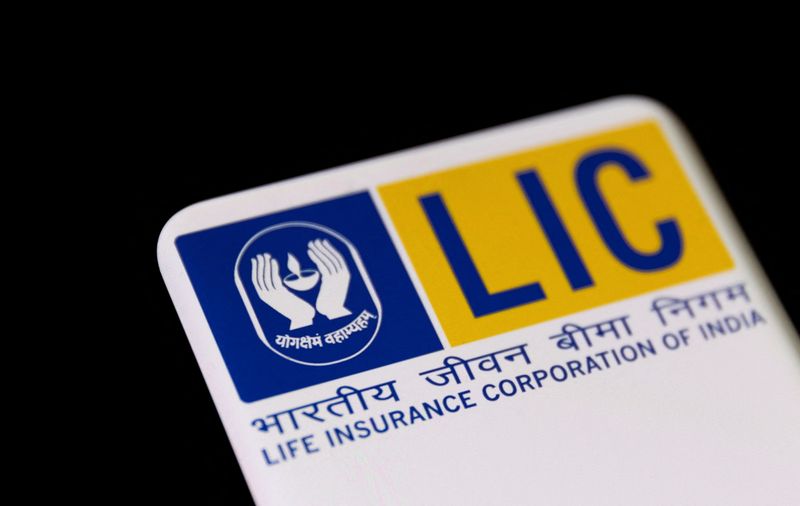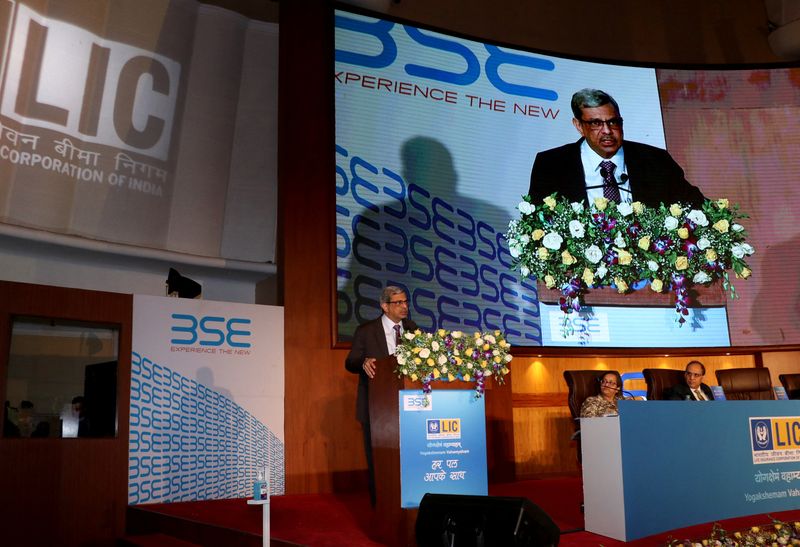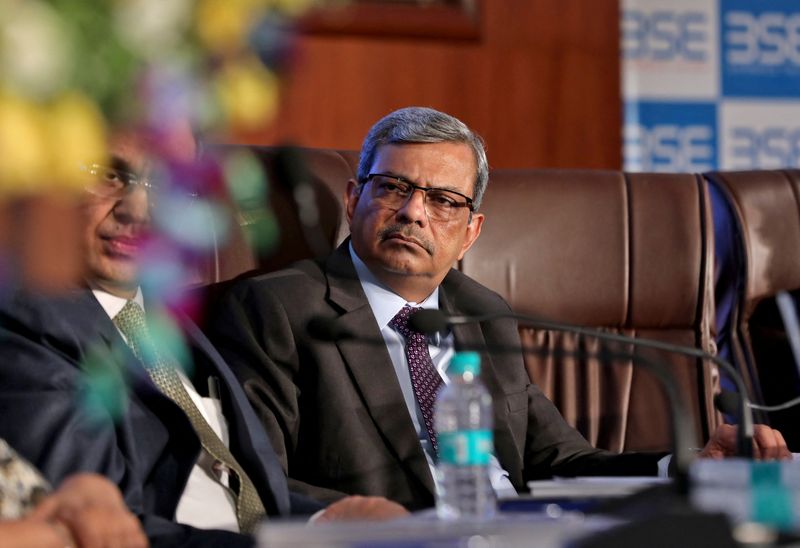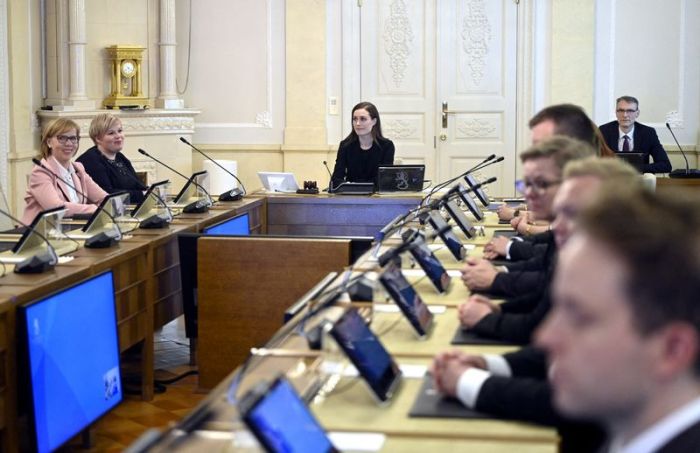MUMBAI (Reuters) – Shares in Life Insurance Corp of India (LIC) slid nearly 8% in its market debut on Tuesday, a fresh setback for the state-owned giant as its record-breaking, oversubscribed IPO raised far less than expected for the government.
India’s biggest insurer and largest domestic financial investor closed at 875.25 rupees, compared to the IPO price of 949 rupees. LIC now has a market value of around 5.54 trillion rupees ($71.54 billion) and is India’s fifth-biggest company.
The share price decline reflects weak overall market sentiment and a slump in the broader market since LIC’s IPO opened for subscription on May 4, analysts said, even as the blue-chip NSE Nifty 50 index closed up 2.6% on Tuesday.
“We were not expecting a big listing as markets were jittery, expect it to pick up,” LIC’s Chairman M. R. Kumar told reporters.
The government, which had positioned the sale as the first and biggest of a wave of privatisations aimed at replenishing state coffers, raised roughly 205 billion rupees, or around $2.7 billion, from selling a 3.5% stake in India’s largest-ever IPO.
That compares with a fundraising goal of around 300 billion rupees in April, that was in turn halved from earlier expectations after investors pushed back against lofty valuations. Initial government estimates had valued LIC at around 17 trillion rupees.
The stake sale in LIC will help the government to bolster its finances but will not be adequate to meet its divestment target of 650 billion rupees in this financial year.
“LIC has also been losing market share to private insurers so investors will be cautious. It was not expected to really give a huge premium on listing, but there is some disappointment on the listing discount,” said a fund manager with a domestic mutual fund which skipped subscribing to the LIC IPO.
Investment bankers are hopeful that the shares will bounce back in the coming days.
“We expect it to settle about 5-10% higher than the issue price after the initial volatility,” said a top investment banker to the LIC IPO.
FALLING MARKET SHARE
LIC is the latest in a string of Indian companies that has fallen sharply after listing as investors looked closely at potential profitability and question valuations.
Fintech firm Paytm plunged in its debut last November following a $2 billion IPO, at the time India’s largest, and its shares now are worth not much more than a quarter of its IPO price.
Other big listings such as food delivery firm Zomato Ltd and cosmetics retailer Nykaa are also trading at large discounts to their IPO prices.
Amid fierce competition from rivals such as HDFC Life Insurance Company Ltd and ICICI Prudential Life Insurance Company Ltd, LIC’s market share has dropped to 63% from 66% in 2019, according to data from the insurance regulator.
LIC’s Kumar said the company will focus on higher margin policies as well as improving its digital offerings and its bank partnership distribution network to arrest the fall in market share, adding that he expects market share to stabilise around current levels.
Macquarie Research’s Suresh Ganapathy said LIC will find it challenging to shift into higher margin policies as rivals have an established presence in that segment. He started coverage of LIC with a price target of 1,000 rupees and a neutral rating.
Large investors have also been concerned that LIC’s investment decisions, including those in loss-making state companies, could be influenced by government demands.
However, retail investors remain bullish on the stock and bids were oversubscribed nearly twice by retail individual investors who were offered shares at a discount of 45 rupees per share. Policyholders were given a discount of 60 rupees per share.
“I was expecting LIC to list at a discount considering the market conditions, but its valuations compared to peers are attractive, so I am in for the mid to long term and have added more shares today,” said Sankeet Patel, an employee with a online retailer in the southern city of Bengaluru who was allotted shares as a policyholder.
($1 = 77.4443 Indian rupees)
(Reporting by Nupur Anand in Mumbai, Chris Thomas in Bengaluru; Writing and additional reporting by Aftab Ahmed in New Delhi; Editing by Edwina Gibbs and Bernadette Baum)
























